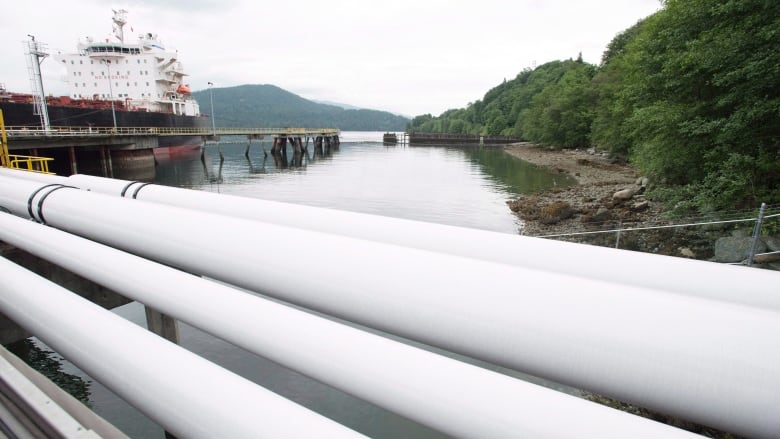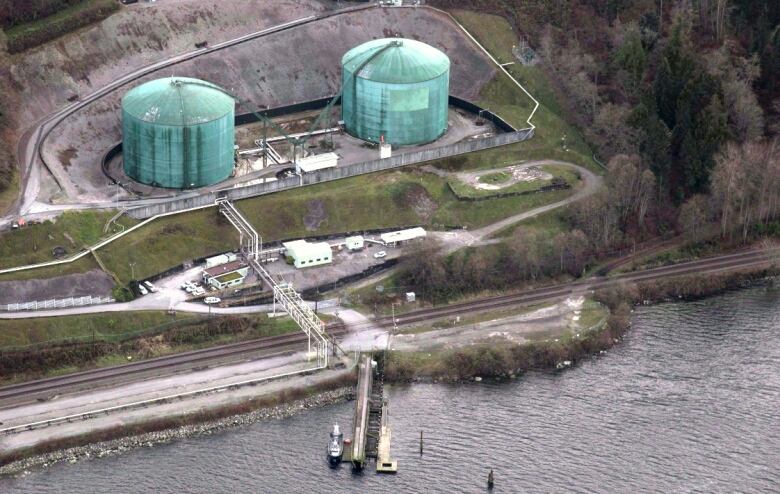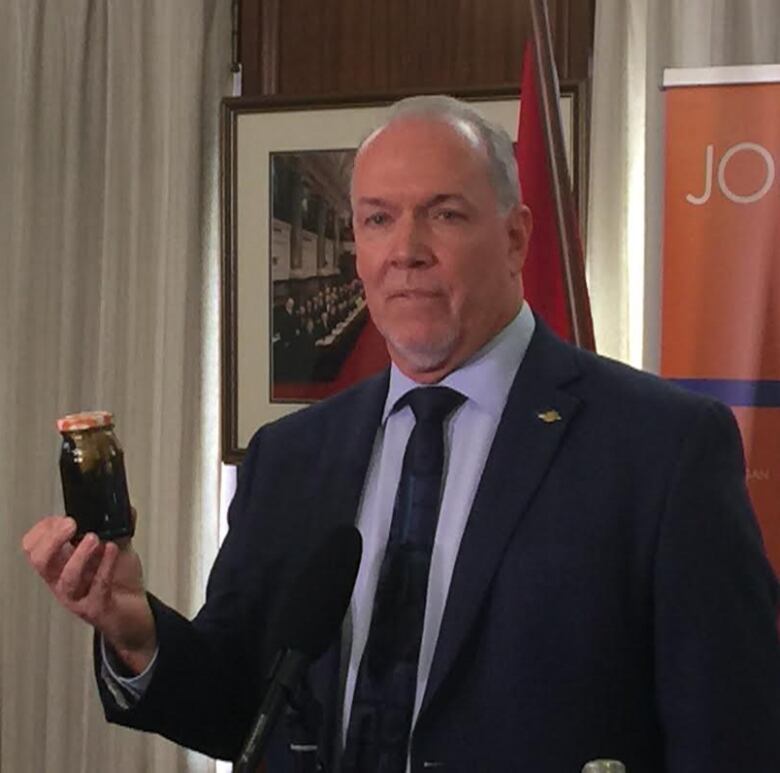Trans Mountain pipeline expansion granted environmental certificate by B.C. government
Province has tacked on 37 conditions for environmental approval on top of 157 NEB conditions

The B.C. government has given the green light to the Trans Mountain pipeline expansion project, after reaching an "unprecedented" agreement with Kinder Morgan for up to $1 billion in investment over 20 years.
"We always said that the five conditions were a path to yes," said Premier Christy Clark in a Wednesday news conference, referring to B.C.'s stated terms for pipeline approval.
"That's where we are today."
Environment Minister Mary Polak and Natural Gas Development Minister Rich Coleman issued the environmental assessmentapproval for theinterprovincial twinning of the pipeline between Edmontonand Burnaby, B.C., after what Clark described as years of "long and intense" negotiations to get "as much for B.C. as we possibly can."
We believe environmental protection and economic development can occur together.- B.C. Environment Minister MaryPolakand Natural Gas Development Minister Rich Coleman
In a joint statement, Polak and Coleman said, "We have always been clear economic development will not come at the expense of the environment.
"We believe environmental protection and economic development can occur together, and the conditions attached to the EA certificate reflect that."
Clark repeatedly said thatB.C.'s role was to extract value and protection for the province through negotiations, based around the five conditions the government issued in 2012 for approving any pipelines.
"This wasn't a project that was ours to approve. It was the federal government's.... Our job was to fight for the best interest of British Columbians," said Clark.
"Had the five conditionsnot been there, [it] might mean that this project might not have been approved without additional coastal protections."

New conditions, new funding
B.C. was required to provide its own environmental assessment separate from the National Energy Board's after a court ruling stated it could not assign the matter on projects of this magnitude. That assessment came with37 new conditions, above and beyondthe 157 conditions required by the National Energy Board.
The conditions are meant to addressconcerns that have been raised by Aboriginal groups during consultation undertaken for the project, including impacts on vegetation and wildlife, parks and protected areas, greenhouse gas emissions and terrestrial and marine spills.
- Justin Trudeau announces $1.5B ocean protection plan
- B.C. lays out West Coast spill response needs ahead of expected federal plan
Kinder Morgan has also agreed to pay B.C. between $25and $50 million per year for 20 years, to go into a fund for environmental protection, according to the province.
"Much of that fund will be devoted to work that community groups are taking on," Clark said. "Community groups will apply for the money, and if it fits the criteria, that money will be dispersed to them."
The deal also "has British Columbians first in line for jobs" on the pipeline, the government said in a news release.
The federal government granted approval in November, sayingthe project was in the national interest. The $6.8-billion expansion would triple Kinder Morgan's oil capacity to 890,000 barrels a day, in the 987-kilometre pipeline.
Shortly after the decision was announced, Alberta Premier Rachel Notleyexpressed her approval.
"I'm very happy. It's good news for Alberta," she said.
"I'd like to welcome this news from our neighbours in British Columbia, and I thank Prime Minister Trudeau and the federal government for the work they have done to make sure this project is safe and that the conditions British Columbia set out were met."
B.C. premier 'has just conceded'
The pipeline faces strong local opposition, includingfrom BurnabyMayor Derek Corrigan, who said the project would bring seven times the number ofoil tankers into Burrard Inlet, off Vancouver's coast.
"I am surprised they have made this decision without negotiating any resolve on the conditions," said Corrigan. "I guess [Clark] has just conceded to the federal government on the issue and put up conditions to look like she has gained something."
- First Nations, environmentalists vow 'long battle' on approved Kinder Morgan pipeline
- Why Kinder Morgan could severely damage the Trudeau-B.C. connection
- Beyond the hippie stereotype: A closer look at the opposition to Trans Mountain
TheBurnabymayor said the project is still before both the Federal Court of Appeal and the B.C. Court of Appeal.
A provincial election is scheduled for May 9, and NDP opposition leader JohnHorganmade clear his party would make its criticism a central point of itscampaign.

"Some risks are too great. Some messes you just can't clean up," said Horgan, holding up a glass of bitumen he said was given to him by someone who lives in Hope, B.C., one of the communities the pipeline passes through.
"I will do everything I can between now and election day to work with every British Columbianwho wantsto make sure that this does not find its way into our marine environment."
Construction is scheduled to begin in September, with an expected completion date of late 2019.













_(720p).jpg)


 OFFICIAL HD MUSIC VIDEO.jpg)
.jpg)



























































































